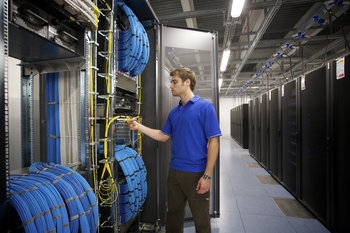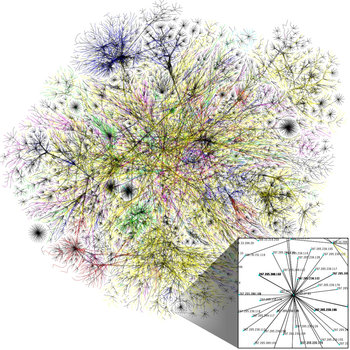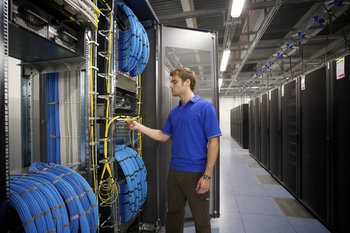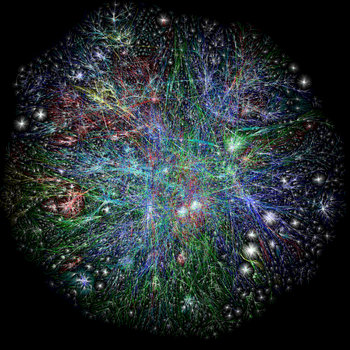
Telecommunications services | Wireless services |
Internet service providers | Cable TV |
Satellite TV | Radio broadcasting |
Television broadcasting | Newspapers |
Magazines | Digital media |
Social media | Advertising agencies |
Public relations | Marketing companies |
Telecom infrastructure | Data center services |
Cloud computing services | Web hosting |
VoIP services | Video conferencing services |
Telecom equipment manufacturers | Satellite communication services |
Streaming media services | Podcasting platforms |
Vlogging platforms | Search services |
Communication software | Media & entertainment companies |
Film studios | Music companies |
Internet infrastructure services | Edge computing services |
Content delivery networks | Digital advertising platforms |
Movie theaters | Film production services |
Mobile device manufacturers | Mobile app providers |
Video game companies | Media technology platforms |
Voice
Telephone services and modern voice products such as voice over IP and videoconferencing.Mobile
Mobile voice and data services such as wifi and 4G.Broadband
High speed internet to the home. Telecom companies often control the last mile, meaning that they connect directly to people's homes. It is common for telecom companies to hold a monopoly in this area such that they are the only firm to provide connectivity in a city or region. As such, it is common for telecom to be heavily regulated by government with rules such as net neutrality.Cable
Cable television services. This is a declining business in many areas due to competition from stream media services.Streaming Media
Telecom companies may offer streaming media services. Likewise, streaming media companies may begin to resemble telecom companies if they buy their own network infrastructure.Media
It is common for telecom companies to own television stations, film production companies and other media interests.Retail
Telecom companies may sell mobile devices via retail locations and ecommerce channels and often dominate in this space. It is common for telecom companies to tie the sale of mobile devices to the purchase of mobile services.Business Infrastructure
Network and computing services for businesses such as a dedicated line for a private network.Colocation
Offering equipment, space, power and bandwidth in data centers as a service.Cloud
Offering cloud infrastructure, technology platforms and software as a service to businesses and consumers. For example, a cloud infrastructure service that allows businesses to scale up and down their use of computers in a data center in real time.Content Delivery Network
Services that allow media companies to deliver content such as a video from a data center that is geographically close to the user.Edge Computing
Edge computing is a class of services that allow for computation that is geographically close to where you need it. For example, a retail chain that needs to process transactions in data centers that are close to their stores to improve performance.Proximity
Allowing customers to compute in a strategic location such as across the street from a major stock market whereby network performance is faster than any other location connecting to the same market.Network Security
Network security services such as a VPN.Internet of Things
Internet of things is a term for products and services that connect to networks to improve their functionality. This includes business infrastructure such as a solar panel and consumer products such as a toy. Telecom companies often provide the networks and computing infrastructure for these services.Summary
The following are common examples of the communications industry: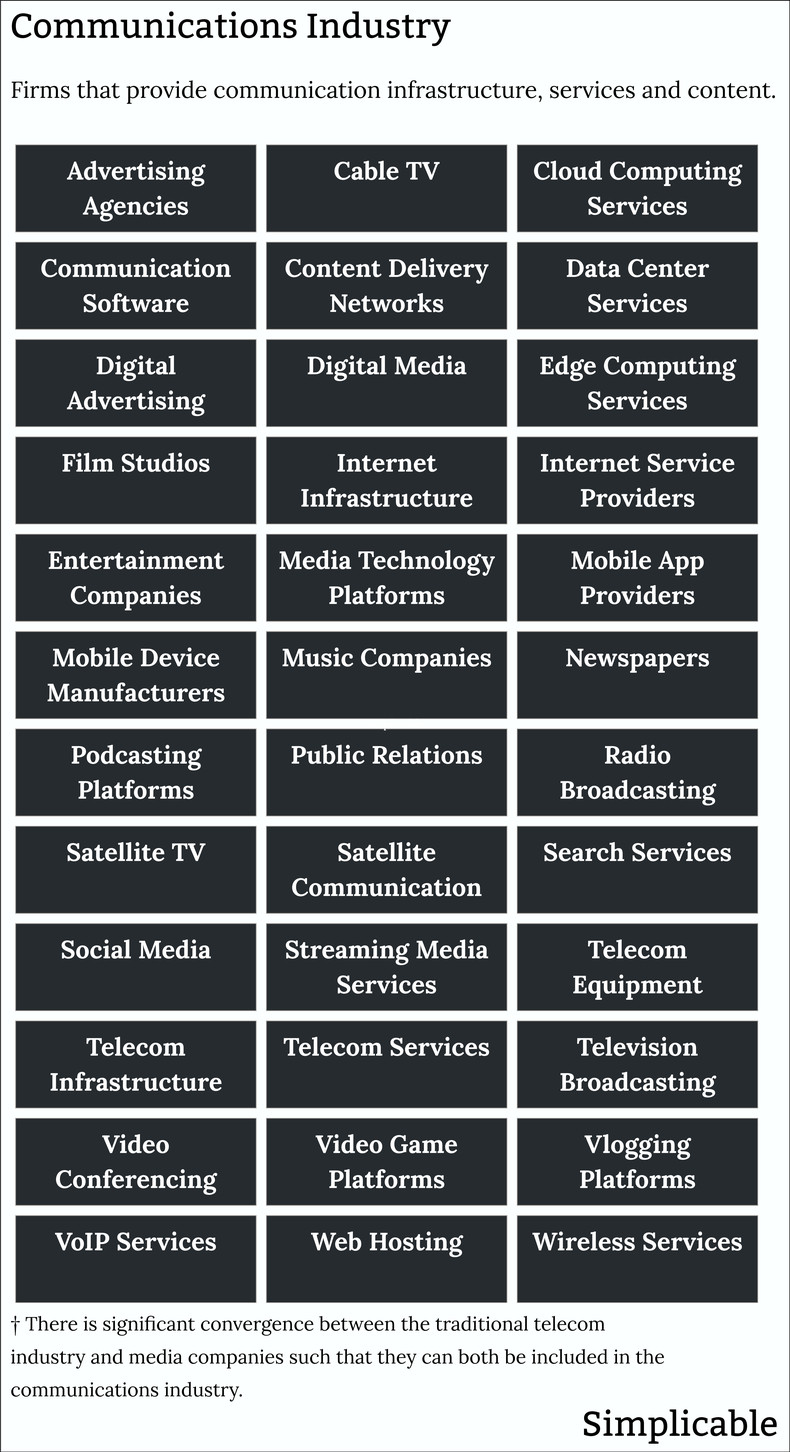
Overview
Firms that provide communication infrastructure, services and media content.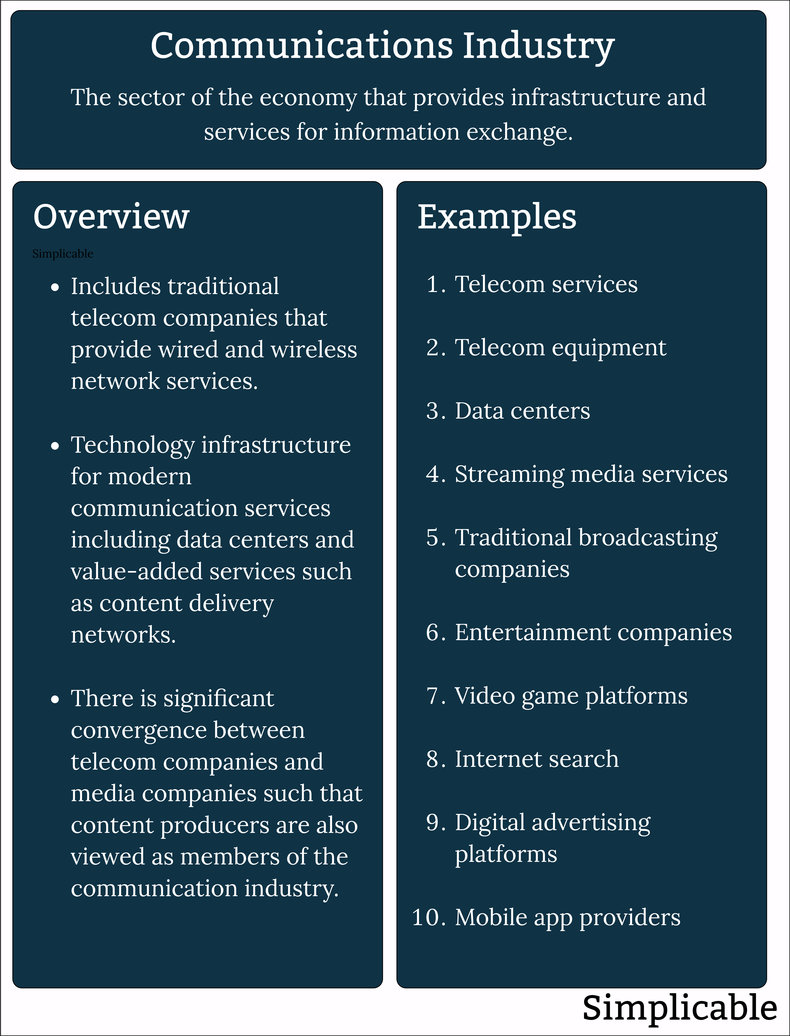
Notes
Due to processes known as digital convergence and media convergence, communications companies, media companies and technology companies tend to resemble each other with time. That is to say that major telecom companies are trying to become media companies and major media companies may take steps to own their own networks.| Overview: Communications Industry | ||
Type | ||
Definition | The segment of the economy that provides network and computing services. | |
Also Known As | Telecom IndustryTelecommunications Industry | |
Related Concepts | ||














